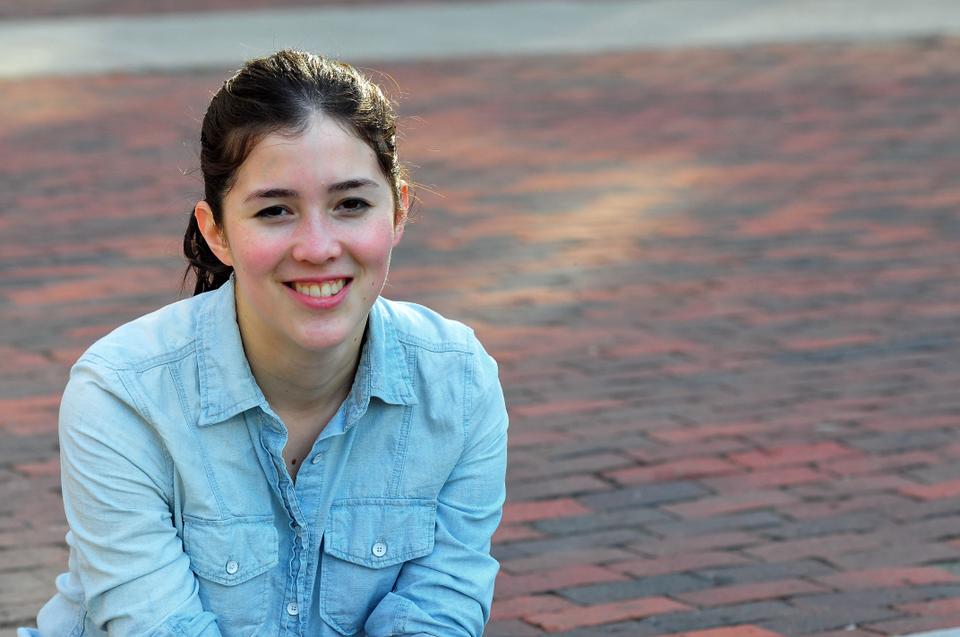
News
Cambridge Residents Slam Council Proposal to Delay Bike Lane Construction

News
‘Gender-Affirming Slay Fest’: Harvard College QSA Hosts Annual Queer Prom

News
‘Not Being Nerds’: Harvard Students Dance to Tinashe at Yardfest

News
Wrongful Death Trial Against CAMHS Employee Over 2015 Student Suicide To Begin Tuesday

News
Cornel West, Harvard Affiliates Call for University to Divest from ‘Israeli Apartheid’ at Rally
Junior Starts Jackfruit Social Enterprise

When Annmarie E. Ryu ’13 first spotted a large, green, spiky object at a marketplace in India, she was unsure whether it was animal, vegetable, or mineral.
The vendor informed her that it was a jackfruit—the largest tree-growing fruit in the world. Ryu decided to try it.
“It was literally the most delicious thing I’d ever tasted,” she said.
That experience inspired Ryu to found Global Village Fruits, a business importing jackfruit to the United States. The company will receive its first shipment in the coming weeks, and jackfruit will be available on the shelves of Boston stores early next month.
Ryu describes the fruit’s flavor as a mix between pineapple, mango, and banana. Her company will import dried jackfruit, jackfruit powder, and jackfruit seed.
Ryu has reached out to a number of specialty food stores in the Boston area, including Whole Foods Market and Broadway Market.
Jackfruit is a novelty to the United States but unexceptional in India. By some estimates, 75 percent of the jackfruit in the country goes to waste every year. Ryu hopes to use her business as a way to raise awareness about the plight of Indian jackfruit farmers, who boast large harvests but meager financial profits from the fruit.
While Ryu sources her product from a cooperative that is among the best in India, many rural jackfruit farmers do not have the infrastructure to produce a high-quality product.
“One group that I visited multiple times works in a two-room rented space where the bathroom has been converted to a cooking space and the equipment is all just pots and pans—the most low-tech thing ever,” Ryu said. “They don’t even make enough money from their jackfruit product to do that as their main thing.”
With more money, Ryu said, such businesses could improve their production materials and achieve a higher-quality product that can be sold to bigger retailers.
Ryu hopes to one day use a portion of the profits from Global Village Fruits to support jackfruit farmers in India.
Broadway Market manager Richard V. Sabounjian said that after Ryu approached him with her business, he was drawn by both the company’s product and its social entrepreneurial goals.
“I think it’s a good cause,” Saboujian said. “If it doesn’t go, it doesn’t go. But it’s worth a try. And I think it will take off.”
Broadway Market plans to begin stocking dried jackfruit in the beginning of April for fewer than 5 dollars a bag.
Ryu said that while some people might be hesitant to try the exotic fruit, jackfruit’s distinct and “delicious” flavor, as well as its health benefits, make it a snack “worth trying.” Jackfruit is high in magnesium, potassium, and fiber.
“This product is also helping people in India,” Ryu said. “By buying this product you are supporting farmers’ livelihoods and helping small businesses become self-sustaining.”
—Staff writer Hana N. Rouse can be reached at hrouse@college.harvard.edu.
Want to keep up with breaking news? Subscribe to our email newsletter.
